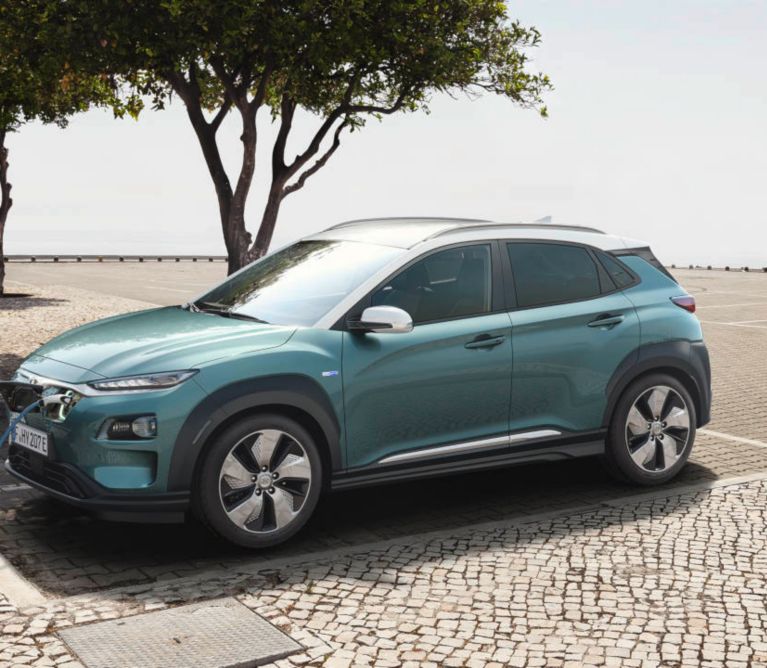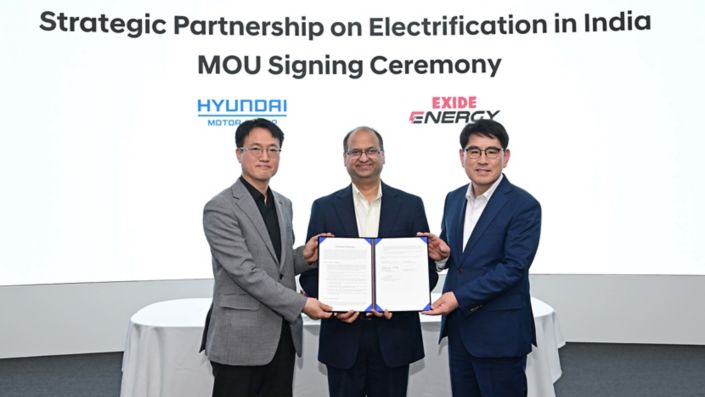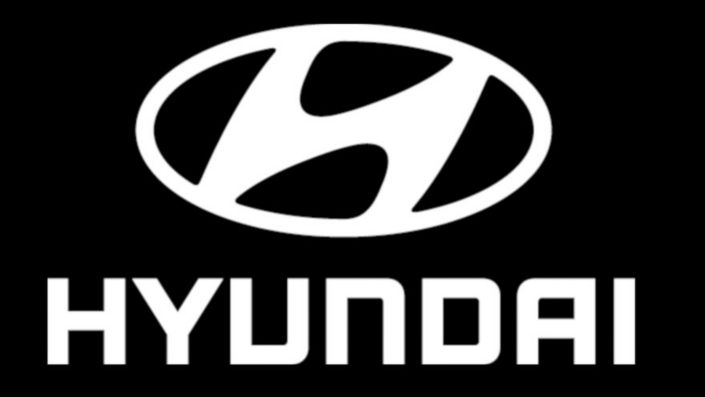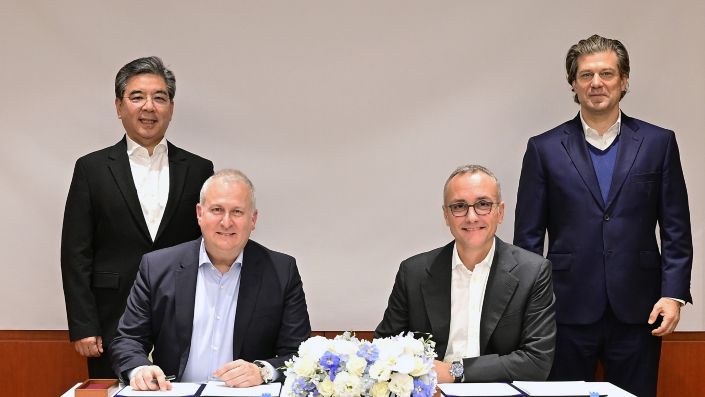- Governments all over Europe are offering generous subsidies on the purchase of new electrified vehicles
- The exact conditions vary by country, with some countries offering up to EUR 10,000 to offset the cost
- Hyundai offers the broadest range of electrified powertrains to lower emissions and cut total costs of ownership
Press material
-
Download
-
Images
It offers an historic chance to cut carbon emissions by making it even easier for people to purchase a low- to zero-emission vehicle, with Hyundai in a leading position to meet the needs of buyers.
While some European countries have offered to subsidize the cost of a new EV for several years now, others are introducing these measures for the first time. Still others are increasing the extent of their existing subsidies to further promote electro-mobillity.
With more than 70 percent of its fleet available with an electrified version, Hyundai is a pioneer in the field of emissions-free mobility. The zero-emissions stars of the Hyundai lineup include IONIQ, which was the world’s first vehicle available with the choice of a hybrid, plug-in hybrid or battery electric powertrain, and Kona Electric, Hyundai’s best-selling all-electric subcompact SUV. Another noteworthy emissions-free model is NEXO, Hyundai’s second-generation fuel cell electric vehicle (FCEV), which runs on hydrogen and produces water vapour as its only emission.
The recent steps have been important for further driving the clean mobility change. With manufacturers such as Hyundai producing high-quality emissions-free vehicles, and governments making them accessible to more customers, we will drive mobility towards a cleaner, more sustainable future.
The amount of the subsidy, conditions for eligibility, and deadline for purchase vary by country. Detailed information on how to benefit from the subsidies available in a particular region can be gathered at the local Hyundai dealer. Here it is summarised, showing the various offers for BEVs (battery electric vehicles) and PHEVs (plug-in hybrid electric vehicles).
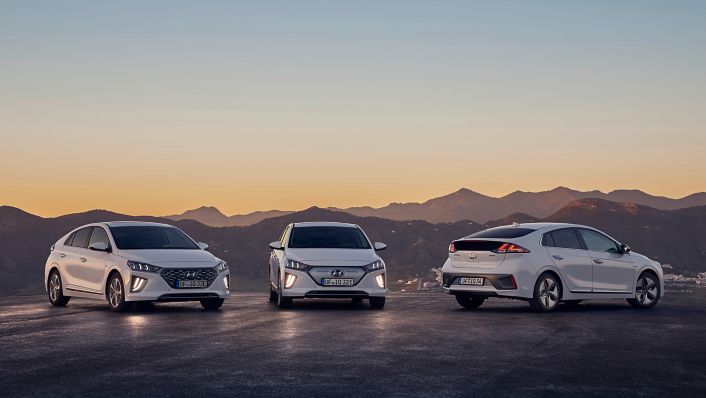
Germany
Germany has implemented a 3 percent reduction in value added tax (VAT) from the period of 1 July to 31 December 2020. This applies to all Hyundai models, not just electrified vehicles. In addition, the BAFA (state environmental incentive) offers an additional EUR 6,000 in savings on BEVs and EUR 4,500 for PHEVs.
UK
The UK government is offering tax exemptions for zero-emissions vehicles, in addition to up to GBP 3,000 in government grants for vehicles which cost less than GBP 50,000 new. Hyundai models IONIQ and Kona Electric are both eligible.
France
France is offering generous subsidies on BEVs which cost less than EUR 45,000, including Hyundai’s Kona Electric and IONIQ. For new BEVs which are purchased between 1 June and 31 December 2020, France is offering up to EUR 7,000 in discounts for vehicles purchased for private use and up to EUR 5,000 purchased for professional or company use. The subsidy is capped at 27 percent of the vehicle’s price. In addition, plug-in hybrids which cost EUR 50,000 or less and have an urban electric range of less than 50 km (according to WLTP) can benefit from a discount of up to EUR 2,000, again capped at 27 percent of the vehicle’s price.
Spain
Purchasers of BEVs in Spain can benefit from EUR 4,000 in government grants – or EUR 5,000 if they scrap a vehicle which is older than seven years. This applies to Kona Electric and the battery-electric version of IONIQ. In addition, purchasers of PHEVs including IONIQ plug-in hybrid can save EUR 1,900 at the time of purchase – or EUR 2,600 if they scrap an older petrol vehicle at the same time. This is in addition to various tax benefits, both at the time of vehicle purchase and during the total period of ownership.
Italy
In Italy, purchasers of new BEVs can benefit from a EUR 4,000 Eco Bonus. This applies to BEVs purchased between 1 August and 31 December 2020 and includes models such as IONIQ and Kona Electric. Purchasers of plug-in hybrids, such as IONIQ PHEV, can also benefit from a discount of EUR 1,500. And that’s not all – customers who choose to scrap their previous petrol car can receive an additional scrapping bonus for a total of EUR 6,000 or EUR 2,500 in savings for BEVs and PHEVs, respectively.
In addition, the Italian Senate is currently discussing a proposal to increase the scrapping bonus for internal combustion vehicles registered before 2010 and to add an additional eco bonus for electric vehicles. If approved, this would result in a total of EUR 10,000 in savings for BEVs and EUR 6,500 for PHEVs.
Netherlands
From 1 July 2020, the Netherlands is offering savings of up to EUR 4,000 for new, zero-emission BEVs.
Czech Republic
In the Czech Republic, government workers and state authorities can also benefit from generous subsidies for electrified vehicles. The subsidies vary by vehicle type: CZK 250,000 (EUR 9,388) for BEVs, CZK 200,000 (EUR 7,510) for plug-in hybrids, and CZK 50,000 (EUR 1,878) for regular hybrids. The deadline to apply is 31 October 2020.
Turkey
While Turkey is not offering any specific monetary subsidies for EVs, it has chosen to reduce the amount of the Special Consumption Tax (SCT) on new purchases of electrified vehicles from the original rate of 45-160 percent (depending on the kW of the batteries) to 3-15 percent.
Finland
Between 2018 and 2021, people in Finland can save between EUR 2,000 and EUR 6,000 when they either buy or sign a long-term lease agreement for a new electric car.
Lithuania
Lithuania is one of few countries to offer new savings on BEVs after the time of purchase. EVs registered and purchased within the past five years can benefit from savings of up to EUR 2,000. For vehicles purchased between 20 April 2020 and 1 February 2021, the savings have been increased to EUR 4,000.
Estonia
Customers can save up to EUR 5,000 on BEVs purchased after 17 January 2020.
Greece
Though not official yet, the Greek government is expected to make an announcement regarding a subsidy for electrified vehicles in the first half of July. The subsidy will equal 15 percent of the pre-tax sales price and up to a maximum of EUR 5,500. Additionally, buyers can also benefit from a EUR 1,000 scrap incentive if they trade in their old internal-combustion vehicle, and EVs are not subject to any import tax.
Slovakia
Customers can benefit from savings of up to EUR 8,000 on BEVs up to 12 months after approval.
Iceland
Iceland offers perhaps the most generous subsidies of all. The country offers savings of up to kr. 1,560,000 (EUR 10,000) VAT-free on previously purchased zero-emissions vehicles.
Slovenia
In Slovenia, customers can benefit from a EUR 6,000 government subsidy when they purchase an EV. To meet the requirements, the car must be new, the subsidy only applies to the first registration, and the car must be completely emissions-free – hybrids and plug-in hybrids do not qualify. There is no deadline for this subsidy – it will continue to be available until the money runs out.
Austria
The Austrian government is offering EUR 3,000 in savings for BEVs which get 100% of their electricity from renewable sources, cost less than EUR 50,000, and which have been purchased between 1 July and 31 December 2020. Kona Electric and IONIQ Electric are both eligible for this subsidy. In addition, Hyundai Austria is offering an advanced bonus of EUR 3,600 for a total of EUR 6,600 in savings on BEVs.
For plug-in hybrids which meet the same requirements, such as IONIQ PHEV, Austria is offering EUR 2,500 and Hyundai Austria is offering EUR 2,050 for a total of EUR 4,550 in savings on PHEVs.

